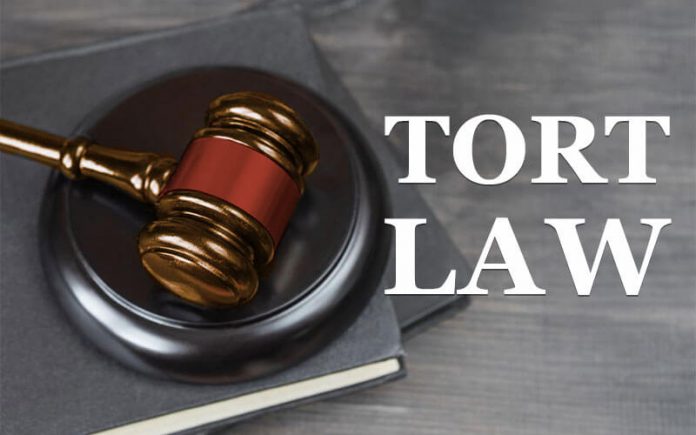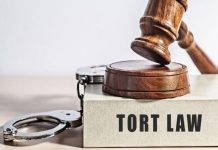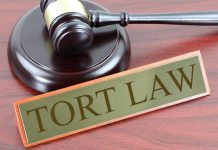This article is written by Madhuri Pilania, from Symbiosis Law School, Noida.
Table of Contents
Introduction
Quasi-judicial – it means an authority that is required to act judicially either by an express provision or by its acts or by important implication of a bill or an act, the decisions of such an authority generally amount to quasi-judicial decisions. However, the executive or administrative bodies are not required to act judicially and are competent to deal with issues referred to them, their conclusions cannot be treated as quasi-judicial conclusions. For example in this case- “Engg. Mazdoor Sabha v. Hind Cycles Ltd”. A Quasi-Judicial body or act suggests that there must be two or more parties and an outside authority to decide the discussion. Hence the presence of two rival parties is must in order to hold the statutory authority as quasi-judicial body. In circumstances where there are no two rival parties, it is a judicial procedure which is required to be followed in Quasi-Judicial acts.
Quasi-judicial is also known as a non-judicial body which has the ability to interpret law. It is an entity or an agency, which has powers and procedures that resemble a court of law or judge, and which is obliged to determine facts and draw conclusions from them so as to provide the basis of an official action. Therefore, these actions are remedy for a situation or to impose legal penalties, and the actions may affect the legal rights, duties or privileges of specific parties.
The term ‘judicial’ does not certainly mean the act of a Judge or Legal committee meeting for the discovery of a matter of law, but a judicial act is an act done by an authority who is competent, for consideration of facts and situations and impose liability or affect the rights of others. In the case of “Royal Aquarium and Summer and Winter Garden Society Ltd. v. Parkinson”, it deals with the meaning of the word “judicial”. It was observed that the word ‘judicial’ has two meanings. It refers to the discharge of duties which can be exercised by a Judge or by Judges in court or to administrative duties which need not be performed in court, but that is important to determine what is fair and just in respect of the matters under consideration or damages.
The difference between “judicial” and “ministerial acts” is – if a Judge is in a dealing a particular matter, has to exercise his discretion or power to arrive at a decision, he is acting judicially; if on the other hand, he is merely required to do a particular act and is prevented from entering into merits of the matter, he is said to be acting ministerially.
The article is titled as quasi Judicial and its background. It talks about the control and the manner of its exercise over the years. Quasi-judicial is an elegant term but it may cause some danger that its critics may condemn along with the natural judicial process. Those who have not understood its importance have suffered from a misapplication and lack of analysis. But in recent times it has been consistently developed in the courts. The correct understanding of this is practical interest and significance. The author insists that the parliament should resolve the problems that exist in the system. The author also compares the executive powers of England and America.
Mr. Gordon follows a path which is traditional and upholds and explains the judicial function as unique. Different authors have different opinions on this. Administration of justice is merely a specialised branch of administration. This judicial procedure has a high and specialised character. It was concluded that the dogma of separation of powers is of no assistance in the judicial system Mr. Gordon gives more precise analysis, more idealistic and rigorous. He dissects and isolates the judicial functions and separates the judge from the administrator. A judicial tribunal is concerned with legal rights and liabilities that are imposed by the law. Many judicial bodies are called administrative tribunals because they are outside the ordinary system of law of courts. And so they are classified according to their functions. It basically raises two questions: whether any distinction exists and if it exists is it of any assistance. It also discusses that the judicial law making differs entirely from the kind of legislation which proceeds from sovereign power.
The article is titled as Judicial History. The author tells about the use of judicial history and also how it differs from judicial materials. Historians, biographers, and journalists draw upon judicial history to set an opinion in the context of its time or to illuminate the internal workings of the court. The historical uses of judicial history differ from the distinctively legal use offered by the litigants. The historians introduced judicial history as an illustrative source that will become part of the illustrative sources that are permissible to explain the legal text. Also judicial materials are useful only as historical documentation, rather than as legally admissible authority. And it is clear that judicial history, in at least some cases, provides the same sort of aid that the other forms of official history are said to provide.
The author gives the example of “United States Postal Service Board of Governors v. Aikens”, in which Justice “Rehnquist” gave an opinion that differentiates “white-collar” from “blue-collar” workers for purposes of “Title VII’s” end to discrimination which goes on employment. I support the assumption that judicial history should not be used as an interpretive source. The arguments stated in the article entail that judicial history should be a permissible source as well as a consequence that would contradict settled interpretive practices and commitments. Part 2 of the article presented a straightforward argument for consulting judicial history as an aid to the interpretation of those texts that are judicially created. The sources which are declared are justified on premises, if consistently applied can make judicial history permissible as evidence of judicial intention. On the other hand, it considers a series of arguments that justify the debarment of judicial history. The way the author has structured the article has not rested on several bases but on one dominant theory.
The considerations that have been discussed in Parts 2 and 3 display two features about the official history: localism and consistency. He also talks about intentionalism. It is not clear about the author if there is an intention about judicial history to be respected or not, the judges who have created judicial history may simply have not considered its possible use as a source.
Case analysis
Jones vs. Saudi Arabia
Facts
The case Jones vs. Saudi Arabia is about an action taken for damages brought by Jones and three other applicants, all the UK citizens who were falsely accused in the involvement in the bombings of Riyadh in the years 2001 and 2002. The four people were alleged that they were repeatedly tortured while they were in prison in Saudi Arabia and also they suffered severe psychological and physical harm also. They wanted to seek damages from Saudi Arabia’s Ministry of the Interior and also from Saudi officials who were responsible for torture and “assault”, also for “battery” and “trespass”, and unlawful imprisonment which were done by them. In the proceedings before the Court of Appeal, Saudi Arabia claimed immunity on its own behalf and also for its officials. The Court of Appeal agreed with the former but denied the latter, all the them who were parties appealed the decision. The House of Lords agreed with Saudi Arabia by upholding the state in court proceedings brought against a state and its officials in a different country for torturing them.
The principal argument in allowing Saudi Arabia’s appeal was that the immunity afforded to Saudi Arabia was also extended to its officials. In advancing this argument, references were made to the relevant provisions of the 1978 Act and to the immunities of jurisdiction. “Lord Bingham”, acknowledged that the convention is not in force and that the United Kingdom has yet to ratify it. He also stated that it provides no exception from immunity in the case of civil claims based on acts of torture.
Issue
Some of the issues are what will be the possibilities for the future? Why did the Government interfere in the Jones v. Saudi Arabia case?
According to me, the UK Government was compelled to interfere in Jones case to guard the rules of “international law” which are presented to the Court. To do something would risk a decision which could put the UK in breach of its international responsibilities.
The argument of all parties in the Jones case focused on the lawfulness of the arguments, and did not address the issues of “public policy” that are inherent in the addition of the “UK Courts” civil jurisdiction. The assumption that courts’ universal civil authority needs to be aligned with its universal criminal jurisdiction, ignores the fundamental differences between the two – particularly the level of public authority that is restricted in civil as compared with criminal proceedings. There is a reduced degree of State control over initiation and conduct of civil proceedings, and an increased risk of frivolous and politically motivated claims. The “partie civile” system that exists in civil law jurisdictions is specifically linked to a successful criminal prosecution. Criminal prosecutions usually rely on the accused in the state while civil cases that do not require the presence of the parties to proceed, hence it creates a risk of multiple actions in different jurisdictions.
The issue of the appeal is whether the court has authority to engross proceedings brought by the claimants against the state. The claimant says that they were tortured in the territory of the foreign state that is Saudi Arabia. The issue in this situation is between two principles of international law. Firstly, the older one is more historical than that of a sovereign state in certain specified instances, that assert its jurisdiction over another. The second principle is that, it is more recent but of the highest control among “principles of international law”, is one that punishes and criminalises the practice of torture, it requires states to subdue the practice and provides for the trial and punishment of officials found to be guilty of it.
Rule
Article 14 was argued purely on whether it required a State to assume jurisdiction or not, but this was expressed as whether Article 14 permitted a State to assume authority or not. “Section 1(1) in Part 1 of the 1978 Act” is headed as “General immunity from jurisdiction” and it provides – “A State is immune from the authority of the courts of the United Kingdom except as provided in the provisions of the part. It was provided in article 15 that “A Contracting State shall be entitled to immunity from the authority of the courts of another Contracting State if the proceedings are not from the articles 1 to 14”. But articles from 1 to 14 are much of the ground as sections from 2-11 of the 1978 Act.
Analysis
The discussion on the possibility of the claimants took the case to the “ECtHR”, but the decisions of the Court suggest that there is some scope for development of the law in this area in the absence of significant change in state practice. In Article 14 it was argued that it required a State to assume authority, but this could have been expressed as whether Article 14 permitted a State to assume authority.
There is some prospect for development in the domestic courts of the Jones’ case. The Lords held that it is not for the domestic Court to progress this issue, because it is an issue for the international community which is developed through a contract.
Conclusion
I came to the conclusion that a State cannot make a jurisdiction it does not possess. The fact was limited because the House went to assume the motive of the judgment in which “Article 6” was engaged. Certain terms were given in which both judges expressed their views on this, it is difficult to consider the issue as settled and it will be likely to be litigated in future. Moreover, the International court of justice made it clear in “DRC v. Rwanda” case that breach of “jus cogens” rule does not confer jurisdiction on a Court. According to “Lord Hoffman”, this case showed the essence of the breach of rule which does not provide an answer for the question of immunity. Summarising the article, the House of Lords agreed with Saudi Arabia by upholding state immunity in civil proceedings that were brought against the state and its officials in different country for torture.
References
- https://lawbriefs.in/tag/quasi-judicial-act/
- https://indiankanoon.org/search/?formInput=%20quasi%20judicial%20acts
- https://www.jstor.org/
LawSikho has created a telegram group for exchanging legal knowledge, referrals and various opportunities. You can click on this link and join:
 Serato DJ Crack 2025Serato DJ PRO Crack
Serato DJ Crack 2025Serato DJ PRO Crack











 Allow notifications
Allow notifications


